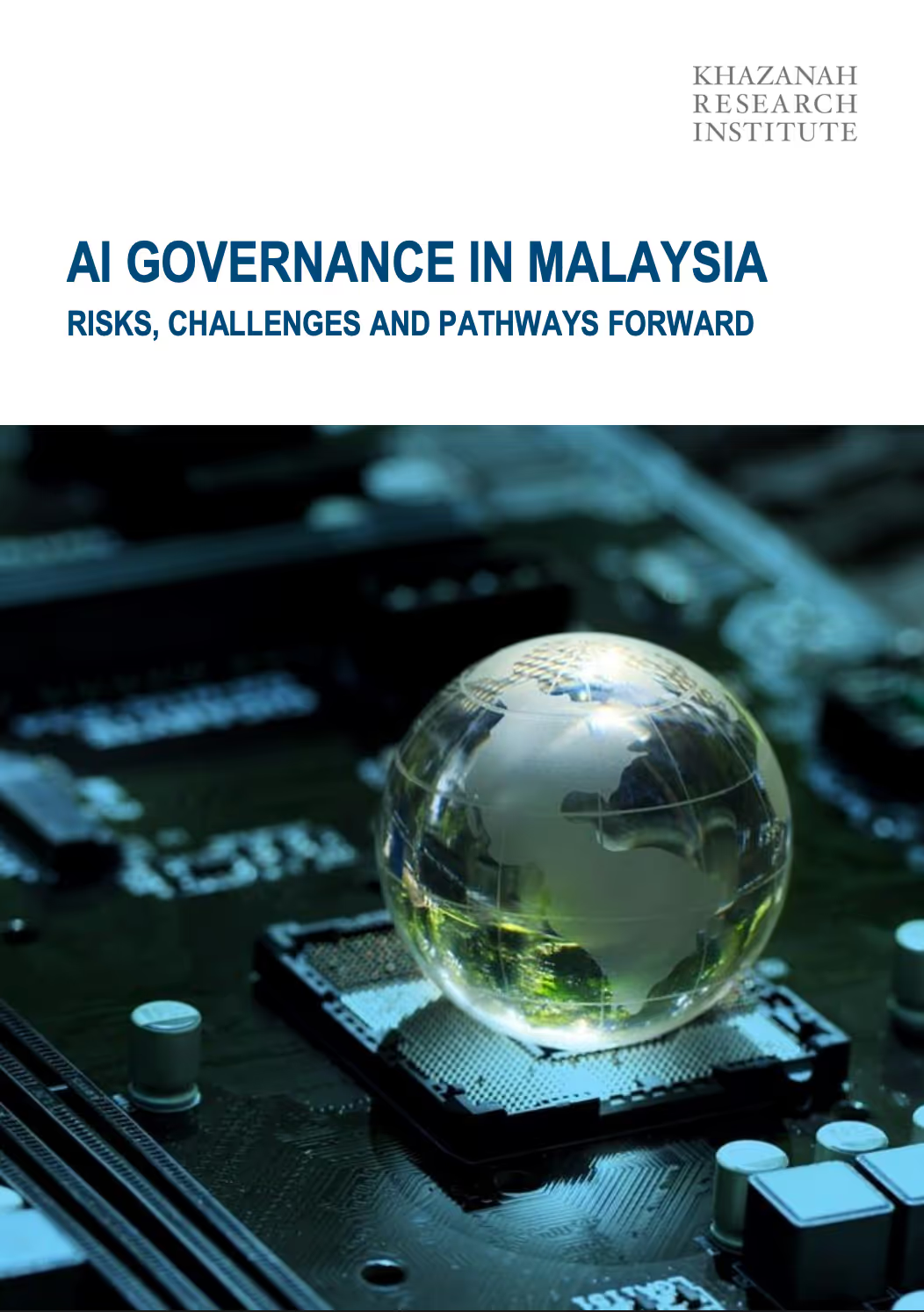
Artificial Intelligence (AI) is rapidly advancing in development and application, offering transformative opportunities and challenges. Globally, governments are striving to create policies that harness AI’s potential while addressing its risks. Malaysia is no exception, making notable progress in AI governance with initiatives such as the release of national guidelines and the establishment of the National AI Office (NAIO).
Building on these efforts, this report gathers insights from local AI policy stakeholders to address critical questions about AI risks, governance challenges and pathways forward.
The topics covered in the report are as follows:
Chapter 2: The AI Governance Landscape in Malaysia provides an overview of Malaysia’s progress in AI governance, including its policy landscape, key government stakeholders, AI governance structures and notable AI initiatives.
Chapter 3: AI Risks identifies three categories of AI risks and differentiates between risks inherent to AI itself and those stemming from the lack of AI readiness.
Chapter 4: Challenges in AI Governance highlights five key challenges, including issues in stakeholders' collaboration and coordination, limited state capacity, complexities in regulatory frameworks, the need to balance innovation and regulation, and external factors beyond our control.
Chapter 5: Policy Recommendations outlines six actionable pathways to strengthen Malaysia’s AI governance, focusing on improving national coordination, engaging in global AI governance and developing an agile regulatory framework. It also emphasises strengthening data governance, fostering broader AI understanding and promoting independent research and oversights on AI impacts.
Read the full report to understand the current landscape of AI governance in Malaysia, the risks and challenges we face, and how we can move forward responsibly to shape a future-ready AI ecosystem.















